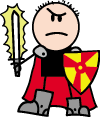I would say there's one strong argument for Miracle that puts it over True Resurrection, Wish, and so on: Where Wish is altering reality, and other spells are things you can just do, Miracle is specifically a request. You say what you want to happen, and request divine intercession.
Since the gods in this world are fleshed-out characters already, with the final say on not just whether it happens, but how, you have far more tools at your disposal to preserve drama, and are under no obligation to even make it a repeatable request, never mind being forced to consider the greater ramifications of said request being possible whenever a sufficiently high-level cleric feels like.
Honestly, it'd be less of a problem for narrative tension than the existence of homebrew content is already. With a Miracle, you still have defined limits on what can happen. A very high-level cleric needs to request it, their deity needs to find it agreeable and important enough to burn divine energy on, it can't clash with existing restrictions on divine action (and we have plenty of those), and it weakens the caster if it does anything existing spells wouldn't cover. Obscure supplements and homebrewed content need no such restrictions.
Because the gods never cared if you killed the ushers to start with. That line only works if someone tries to stop you. As Durk points out, they have no protection from the rules of the Godsmoot, and no god to speak up on their behalf. Which, incidentally, implies that having a god to speak up on your behalf can be a factor even if you're technically not protected. More immediately relevant, they're excluded from protection, when a simpler "no killing" rule wouldn't have that problem. Given how Hel's plan revolves around keeping inside Godsmoot protections, it's probably smart not to extend them any further than you have to. In case somebody, say, teleported in at the right time and dominated all of them to get an advantage.
Besides, they're not really vital to the plan. Durk knew the rules of the Godsmoot, meaning anything keeping him from vamping someone there would just mean he'd vamp a cleric along the way and send them ahead. Same goes for a potential Plan Domination.
And a quick reminder, the earlier topic is about how the gods play, not the mortals. We still don't know which rules belong to which set, and I'd say the whole bodyguard-cleric dynamic is a mortal invention. Gods don't need help putting someone to death immediately if they've got the go-ahead from the divine law.
View Single Post
-
2022-05-05, 08:59 PM (ISO 8601)Halfling in the Playground


- Join Date
- Oct 2007
 Re: OOTS #1256 - The Discussion Thread
Re: OOTS #1256 - The Discussion Thread



 Reply With Quote
Reply With Quote